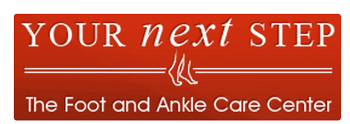It’s midsummer and the corn is “as high as an elephant’s eye” in Chester County. Everyone enjoys fresh corn this time of year, but there’s another type of corn that is not very welcome.
Corns form on the feet where two toes rub against each other, causing a thickening of the skin with inflamed underlying tissue. You’ll find a hard corn on the top bony part of a toe, while corns between the toes have soft cores.
A callus is another type of thick, hardened skin that forms to protect the area under the skin from friction. Calluses are commonly found on the heel and ball of the foot and under the big toe. It’s normal to have calluses on the feet but not if they become painful.
Corns and calluses are created by repeated friction and pressure on the feet. Shoes that are too tight – or too loose – can cause this excessive friction, as can wearing shoes without socks. Unusual pressure from sports or an abnormal gait can also contribute to excess pressure.
Try Home Remedies for Corns and Calluses First
If you have these hardened skin areas on your feet that are not painful, Dr. Eric Ricefield, Dr. Mark Yagodich and Dr. Aliza V. Eisen recommend these conservative home treatments:
Foam pads. Place foam or moleskin pads on the callus or corn to reduce pressure and friction. Avoid over-the-counter salicylic acid applications as these can cause a chemical skin burn in healthy tissue if applied incorrectly, which may lead to infection.
Soak and rub. Briefly soak feet in warm, soapy water and then use a foot file or pumice stone to gently rub the affected area. Dry thoroughly and apply an emollient cream.
Moisturizing cream. Coat feet in a moisturizing cream, cover with socks and leave overnight. Rub calluses with a pumice stone to remove dead skin.
Prevention is important – keep your feet dry and free of friction and wear well-fitting shoes and cotton socks.
Seek a Doctor’s Care for Painful Corns and Calluses
If corns and calluses persist and become more painful, it’s time to visit Your Next Step. Our board-certified or qualified podiatrists will evaluate your condition and, importantly, the reason for your discomfort.
If conservative measures are inadequate we may reduce the thickness of a callus by shaving the top. We may prescribe oral antibiotics for an infected corn. Stronger creams containing urea may be a more effective exfoliant to remove dead skin.
Sometimes an abnormal walking motion, hip rotation or foot structure will cause calluses and corns. If so we will evaluate you for custom-fitted orthotics to relieve skin pressure. Foot surgery to correct deformities may also be indicated.
For any painful or infected corn or callus, call our Ardmore or Paoli, PA offices at 610-642-8837 or contact us through our website. At Your Next Step we will work to restore pain-free walking to make your next step comfortable and pain-free.
